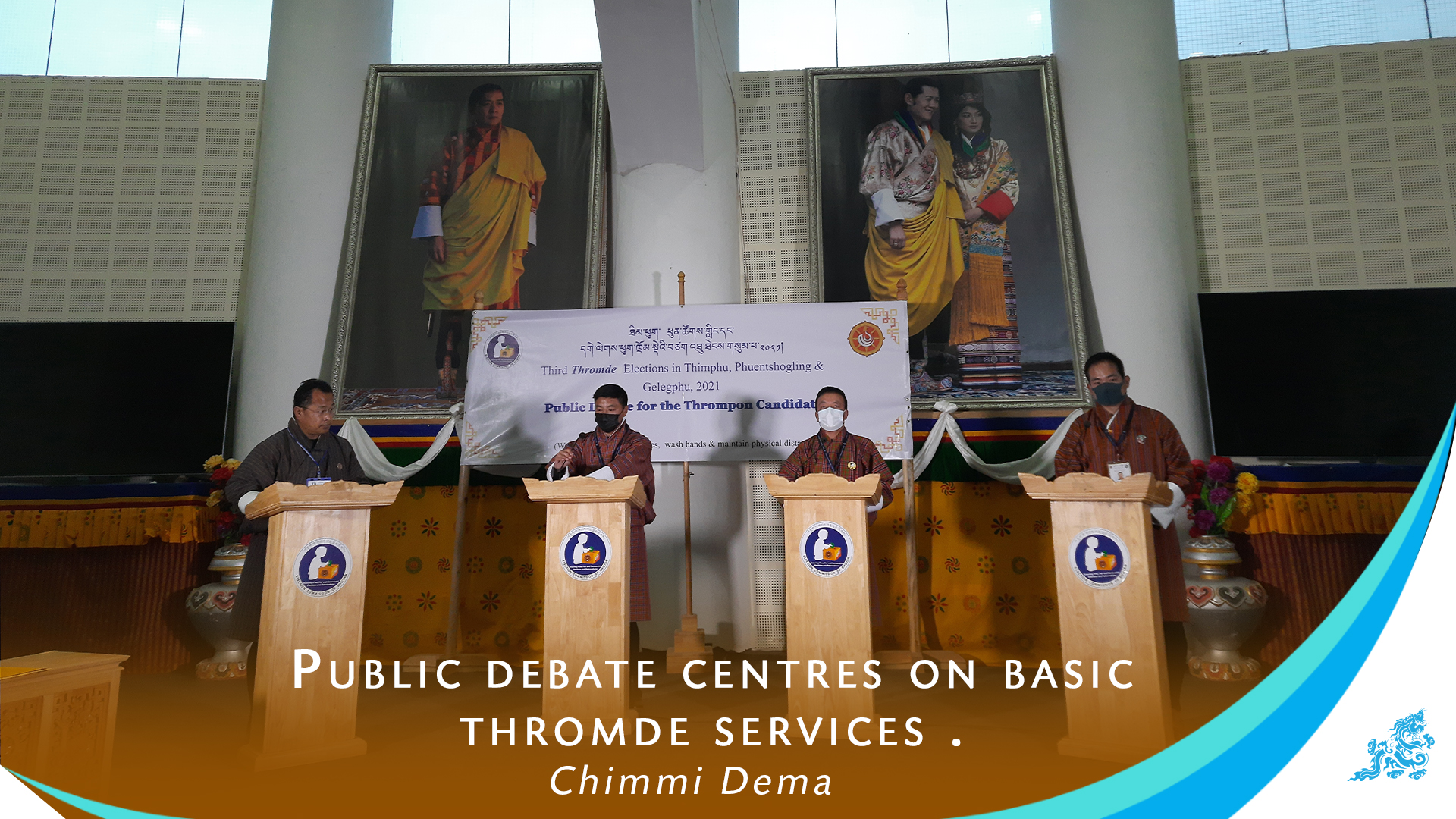
Chhimi Dema
It was not an intense debate, given the format, that would corner each other on issues, but the public “debate” telecast live on national television yesterday gave a glimpse of what the three candidates have to offer to the residents of the capital city.
While only a handful of the capital’s residents will vote in the election, there were issues raised that the thromde’s residents would keep a close eye on. The candidates in being formal wasted much of the three-minute for opening remarks, as they talked and commended the country’s efforts in containing the Covid-19 pandemic.
If the public had expected the two-time former thrompon and the experienced urban planner to dominate the “debate,” it was Sonam Dorji, the new face in the race that was more composed and organised in his introductory remarks.
He talked about the thromde services clearly implying inefficiency and promised to do away with the charges levied on drinking water. Sonam Dorji had done his homework for the “debate” and referred to constitutional provisions of fundamental rights to have access to basic amenities and of natural resources belonging to the people of Bhutan in driving his message home.
The candidate from Jungshina-Kawajangsa, Ugyen Dorji, pointed at the lack of opportunities to speak to the public during his time at the thromde as an urban planner.
Ugyen Dorji said: “While working in the Thromde, the opportunities to discuss before making a decision or interact with the public were not up to my expectation.”
He said employees were dissatisfied and it impeded public service delivery. “For successful implementation of plans, teamwork within the Thromde is a must.”
Banking on his experience, former Thrompon Kinlay Dorjee, said he would like to further improve the thromde’s services that are coming under pressure from increasing urbanisation. He pledges to focus on improving the community vitality if elected again.
“In the absence of infrastructure such as drainage and sewerage system, there were disputes arising between neighbours,” he said adding that services had improved in many local area plans. “The Thromde can strengthen the vitality even if it requires altering the plans,” Kinlay Dorjee said.
Pressed by the moderator on his pledge of free water, Sonam Dorji said that there is a different charge for water and maintenance of the water supply system. “Water should not be charged,” he said.
Ugyen Dorji, having worked with the Thomde picked on the pledge and said that it was impossible to fulfil the pledge of free drinking water. He said the thromde does not charge people for drinking water, but fees for maintenance of infrastructure.
Sonam Dorji, as an outsider (not having worked with the thromde) was more direct and questioned the urban planner why the thromde failed in implementing its plans.
Ugyen Dorji said that although he was engaged in implementing the plans, there could have been lapses because he was focused on a plan and had little say. He clarified that the implementation of the plans was not about getting the approval of the Thrompon or not.
“Plans need to be implemented based on priority,” he said. “Plans that one regard important do not fall into the list of priorities.”
On road, Sonam Dorji, said that the city has many potholes. “If there was a road maintenance team then this issue could have been addressed.”
Kinlay Dorjee said that the roads were constructed in consultation with the people. He said that since there was a lack of consultation with organisations like the Bhutan Power Corporation or Bhutan Telecom before, the constructed roads need to be dug again. “Now in consultation with the organisation whereby the plans are discussed, digging the constructed roads decreased.”
Lack of manpower was a challenge, he added.
The candidates will attend the common forum in Babesa today.

